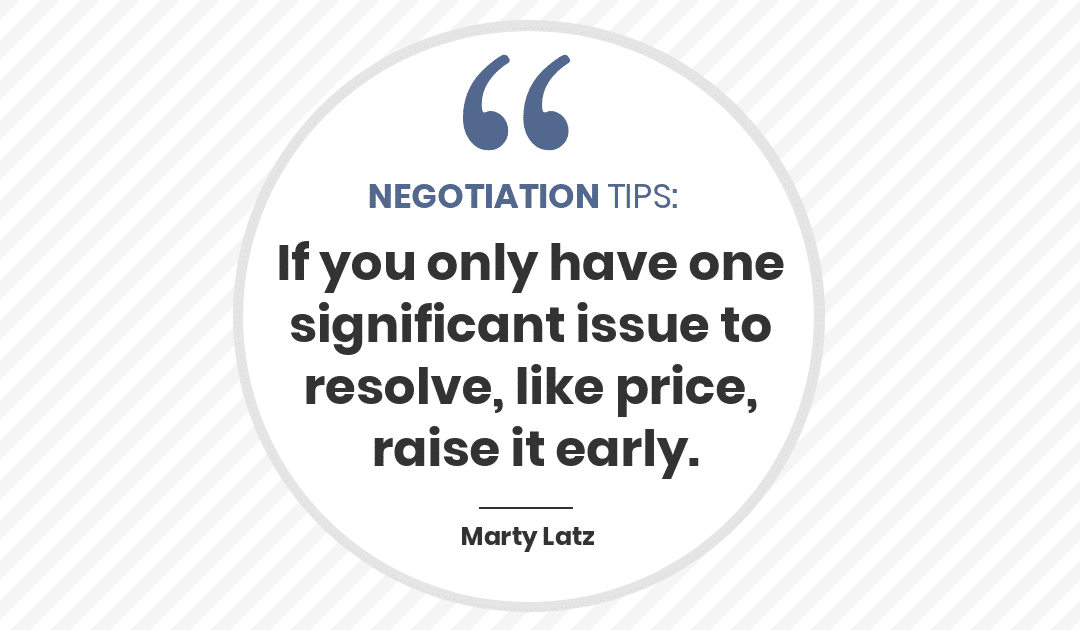

Golden Rule Five: Control the Agenda
Agenda control constitutes a critical element in all negotiations. If, when and how we address issues affects our results. So does setting the appropriate atmosphere in which to most effectively explore the substantive issues. Learn how to set up your agenda to get the results you seek.

Learning Negotiating Skills as Kids Will Pay Off for a Lifetime
Negotiation is a fundamental life skill and core competency in almost everything we do. Kids who learn negotiation early, will benefit from it for a lifetime.

Latz’s Lessons: Best of 2018
Latz’s Lessons: Best of 2018 Last year I shared the inaugural Latz’s Lessons – a compilation of the crucial lessons from my 2017 monthly columns. Here’s the 2018 edition, with a few extras from previous years included too. And in case you missed my...Golden Rule Four: Design an Offer-Concession Strategy
The most common question raised in my negotiation seminars is “When, if ever, should I make the first offer?” The second most common question is “How far should I move for my next concession?” This Golden Rule takes the guesswork out of when, where, and how to make...Golden Rule Three: Employ “Fair” Objective Criteria
“I just want what’s fair and reasonable,” a friend said in the midst of his divorce. “That’s not too much to ask, is it?” “Of course not,” I replied. “The key here, though, is how to determine what’s fair and reasonable. I suspect you have a very different perception...Golden Rule One: Information Is Power – So Get It
The first Golden Rule is essential to success in any negotiation: Information Is Power—So Get It! It’s critical to ask questions and get as much relevant information as you can throughout the negotiation process. You need sufficient information to set aggressive,...
What Is Leverage? 14 Rules for Using it Well
What Is Leverage? 14 Rules for Using it Well What is Leverage? What most consider to be negotiation power — leverage — actually relates to two factors: how much each party needs that deal relative to the other, and the relative value of each party’s best alternative...
